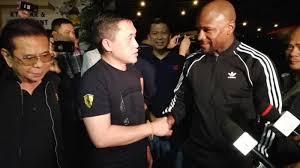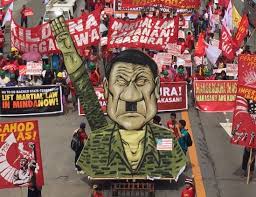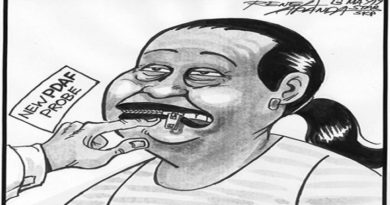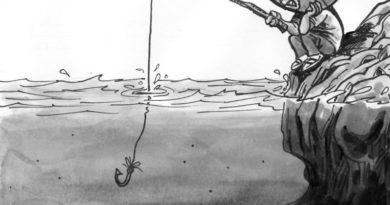OP ED COLUMN: OPINION ON PAGE ONE- Can we jump start two urgent campaign reforms? – By Francisco S. Tatad
OPINION ON PAGE ONE
UNLESS the wildly feared regime change allegedly being plotted by President Duterte’s enemies prospers and preempts everything, the next midterm elections (for senators, congressmen, governors, mayors and other local government officials) should be upon us on May 14, 2019. That’s eight months away, and a lot of time for those interested to organize their respective campaigns.
Yet one casual look at the environment seems to tell us that the senatorial campaign is already in full swing — and super rich candidates are already burning hundreds of millions of pesos on giant tarps, electronic billboards, advertorials and all forms of high-profile political advertising.
The social media no longer seems as potent today as when DU30 ran in 2016. So many troll farms have dried up, and Facebook has recently deactivated a humungous number of accounts. For this reason, DU30’s minions who would like to imitate his successful use of it may not have an easy time. But it remains an important tool for his “candidates.”
A level playing field
The first thing that should concern us though is the playing field. Those who want to control the play would not like to have a level playing field, but everyone else does. Is the Commission on Elections doing anything to make it so?
Until now it is the same Automated Election System (AES) Watch people who are trying to do something about it, but not the Comelec. There is no overriding official effort to make the next automated election more transparent than the last ones and make more individuals of greater moral and intellectual worth and proven political and technical merit participate in the process
..
By definition, every election should be a sovereign activity of a sovereign and independent state. But we have managed to outsource our elections to a Venezuelan provider, without the nation protesting this affront to its highest interest. It makes for an illegitimate and illegal choosing process. The constitutional mandate is for the Comelec to conduct all our elections. But since 2010 Smartmatic has been conducting our elections. They have been profoundly flawed, and have given us de facto rather than de jure “elected officials.”
Nothing seems to change. Despite the highly meritorious complaints of our election experts, scientists and engineers and their effort to come up with a truly accountable alternative system of holding elections, Smartmatic remains in place, in fact stronger than ever, because of venality and corruption. One dinner meeting between the President of the Philippines and Smartmatic’s international chairman Lord Mark Malloch Brown was all that was needed to overturn all the recommendations of the experts against letting the Venezuelans run our elections.
A quantum leap
We are a country of over 100 years. We should be able to conduct a truly honest and convincing election on our own. If we cannot, genuine political reform should begin there; but it should not end there. There should be a quantum jump in the quality of the men and women running for high office. However, the exact opposite seems to be the case. Public office seems to attract the least attractive of public servants. This is not likely to change so long as elections are driven by money and the popular values of the cheapest entertainers.
Wherever I have gone these days, I have been asked by total strangers why I have excluded myself from the political game. They tell me I should be going back to the Senate, where I could be of better service to a lot more people than writing a thrice weekly frontpage column for a daily newspaper. With Malaysian Prime Minister Mahathir staging a comeback at 93, and the much younger Philippine set showing so much lack of maturity, senior statesmen should step in and guide the millennials, they say.
One cannot disagree with that, but our elections have become increasingly surreal. Not only have we adopted an automated system in which one cannot prove he has won after he’s told he has won, or that he has lost after he’s told he has lost, but those who want to participate in it are expected to corrupt their way into political office, instead of merely being worthy for it.
One begins by buying a slot in the opinion surveys put out by the propaganda fraudsters who are tied to the cheating machine that decides who finally wins and who finally loses. Then one pays for “advertorials” that are supposed to circumvent the Comelec rules on equal-media placement. Then one pays the NPA guerrillas for permission to campaign and to win in their “controlled areas.” Then one pays the syndicate that promises to deliver the “Smaartmagic.”
No money, no vote
None of the old malpractices have been eliminated by the latest malpractices. During the last election, voters set up shop in some areas to sell their votes. They had streamers hanging above them saying, “no money, no vote.” Some senatorial candidates who were running short of votes in the Manila count had to fly to Mindanao with suitcases full of cash to arrange for a miraculous surge. Whether one bought votes retail or in bulk, one politician said it scorched his insides and left a lingering taste of evil in his mouth infinitely worse than paying for sex in a whorehouse.
Elections have become a vulgar money game, even for actors and entertainers.
I had two successful senatorial elections, aside from my Batasan regional election in Bicol. On my first election, I spent P3 million; on the second, a little more than P7 million. On both elections, there were candidates who spent anywhere from P200 million to P300 million each, and lost. I am not a rich man, and have always believed that no one should spend on their campaign a single centavo more than what they expect to earn from the position they are running for. I never had to buy a single vote, and I never had to campaign outside the official campaign period. I played everything by the book.
I believe it is a good rule to follow — no elected official would feel obliged to steal or take bribes after the election just to recoup what he had spent to get elected.
Helping poor candidates
Among today’s “non-candidates,” the ubiquitous special presidential assistant, Christopher Lawrence “Bong” Go, whom DU30 had earlier described as a “billionaire,” without explaining where his billions came from, and whose family has been identified in a recent Philippine Center for Investigative Journalism (PCIJ) article as one of the nation’s biggest contractors of government infrastructure projects, appears to have become a pacesetter.
He must have already spent tens of millions of pesos on his “non-campaign,” as a “non-candidate.” By the time the official campaign period starts, he might have already spent so many times more than the legally authorized expenses for senatorial candidates. Only an urgent reform can cure this defect.
Whether he is spending his own or the people’s money is not the issue; rather the issue is, he could get elected on the basis of his propaganda before the official campaign period, rather than on the basis of his propaganda during the official campaign period. And yet this pre-campaign period does not even exist, as far as the Comelec and the Supreme Court are concerned. This makes for a grossly uneven playing field in favor of this rich candidate.
To even up the playing field, it is respectfully proposed that all propaganda expenses incurred by a “non-candidate” before the official campaign period should be automatically treated as part of the candidate’s “authorized official expenses,” as soon as he files his certificate of candidacy. Only if and when he decides not to file a CoC will it become clear that he was never a “candidate in disguise,” trying to circumvent the law on election expenses. This electoral reform is needed to favor penurious candidates.
The election law designates a 90-day campaign period for nationally elected officials, and a 45-day period for local officials. Within this period, candidates shall conduct their campaign pursuant to certain legal guidelines. They are supposed to limit their campaign expenditures to an amount equivalent to P3 per voter for a candidate belonging to a political party, or P5 per voter for a candidate without a political party. The party itself can spend the equivalent of P10 per voter for all its senatorial candidates.
Two urgent reforms
A candidate who spends more than the authorized amount may be disqualified from holding his official position even if he wins. In eliminating the distinction between campaigning regularly during the campaign period, and campaigning prematurely, the Supreme Court has reshaped the law to favor rich candidates. This is a mistake that must be instantly corrected.
Another electoral reform that is badly needed has to do with illegal donations made by rich candidates to the NPA to allow them “to campaign” and “to win” in their so-called “controlled areas.” Since the privilege granted to the paying candidates is denied to other candidates, the government may have to intervene and subject to disqualification those candidates who pay this political tax. This is another urgent reform that should help level the playing field.
THE MANILA TIMES
 All photographs, news, editorials, opinions, information, data, others have been taken from the Internet ..aseanews.net | [email protected] |.For comments, Email to :D’Equalizer | [email protected] | Contributor
All photographs, news, editorials, opinions, information, data, others have been taken from the Internet ..aseanews.net | [email protected] |.For comments, Email to :D’Equalizer | [email protected] | Contributor










